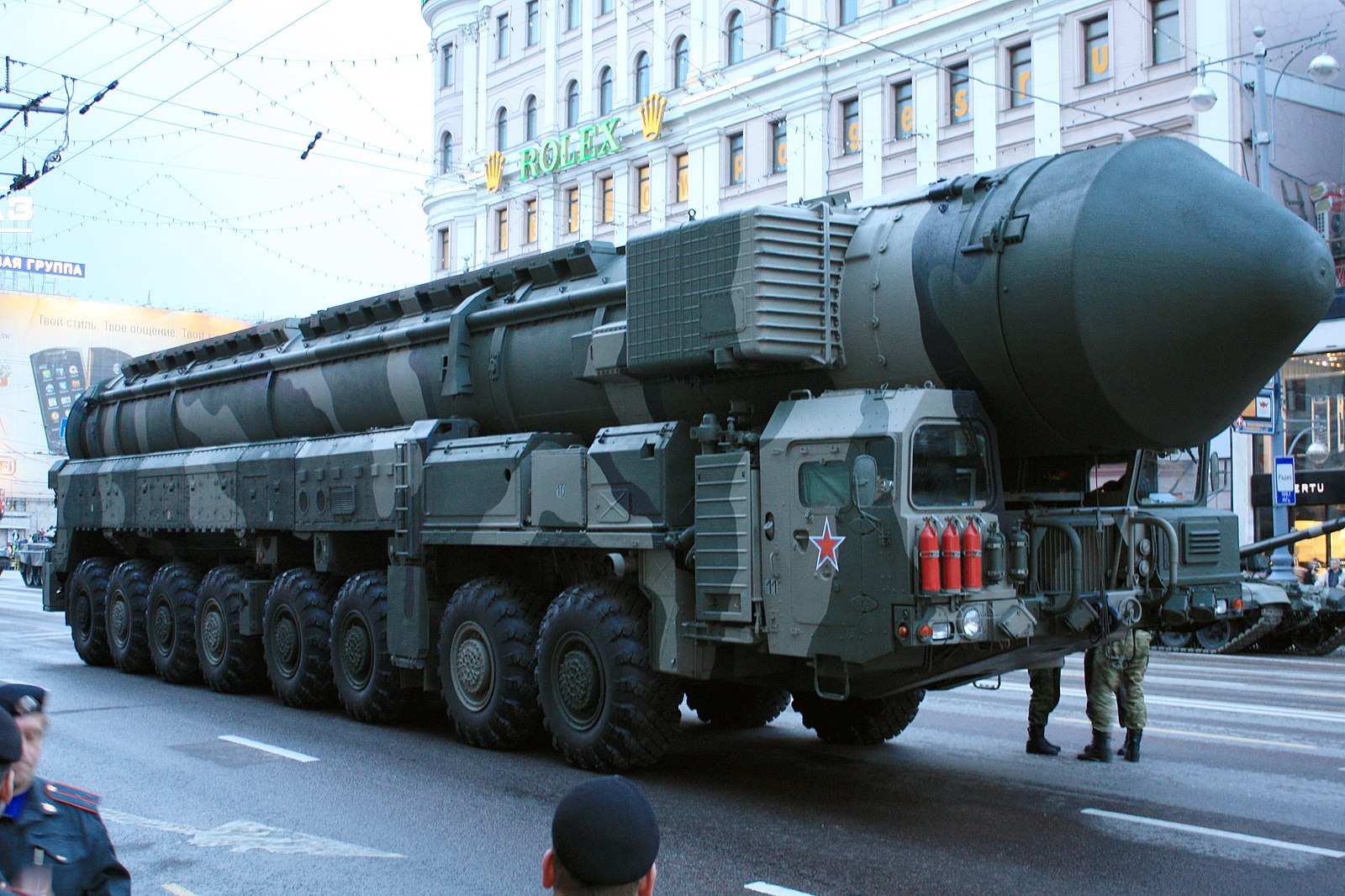
The stakes have never been higher for the United States, as the pressure significantly escalated in the global arms race when Russian president, Vladimir Putin boasted a new upgraded arsenal of advanced nuclear weapons. He described the nuclear weapons as “invincible in the face of all existing and future systems of both missile defense and air defense,” in his Moscow speech March 1.
The hypothetical hypersonic missiles are aimed at the vulnerabilities of the U.S., according to Putin. He proclaimed that the nuclear-powered systems would be “low flying” and have “unlimited range,” which would help to bypass all interceptions. In his speech, he also presented an animation that showed the missiles eventually reaching the American west coast. The speech could very well be interpreted as an ultimatum for the U.S., although the severity of the threat is unclear.
Both Putin and President Donald Trump have a history of hyperbolic exaggerations, which some might say is less about policy and more about demonstrating who is more “macho.” Whether these weapons exist or not, Putin’s public threat is now looming over the U.S. American officials have denied any claims of the weapons being operational, due to failure of the missile in nuclear testing operations.
Yet, the speech is evocative of tensions between the U. S. and Russia, as the threat is very much present. Putin has vowed to use the weapons to protect the sovereignty of Russia, and defend Russia against a nuclear attack. The Russian president is campaigning with the promise to retaliate, if Russia were targeted in a nuclear war. By doing so, he sends a message to the Russian public that they are safe, and that he will guarantee their safety as a strong leader. Putin has even said that he, as the head of the Russian state, would retaliate, even if a nuclear war led to global catastrophe. “What do we need a world for if there is no Russia in it?” he told interviewer, Vladimir Solovyov. Thus, as a global community, we should be wary and react to public remarks by leaders in power, especially in the case where nuclear weaponry may be in the works, and pose the threat of mass destruction.
Putin’s speech was rhetorically effective, in the sense that it appealed to the patriotism of Russian civilians. He made a multitude of idealistic promises, including promises to increase government spending on health care and raise pensions for the working class. Many doubt that he will follow through with these promises, as they come at the price of deception, simply for the purpose of pushing forward the agenda to depict Russia as a superpower, a victor and a force to be reckoned with in the global arms race.
In response to the speech, Trump offered a strong rebuke, calling the nuclear weapons depiction “irresponsible” in talks with leaders of allies Germany, the U.K. and France. But, one might argue that Putin and Trump aren’t so different.
The White House has even announced defense spending of around $700 million in the next year and moreover, Trump has plans to expand the U.S.’s missile defense program to counter threats of attack from Russia and China. The general public should not take the political sparring lightly, as nuclear weapons would affect all civilians. The support for modernizing the military industrial complex is not limited to only Russia, but the U.S. as well. But what about the safety of civilians? The danger posed by nuclear weaponry is understated and almost brushed off in the policy decisions carried out by both Putin and Trump, who claim that they prioritize the interests of civilians. On the contrary, the general public does not support a nuclear war. In a 2002 study done by Cornell’s Roper Center for Public Opinion Research, 22% of Americans said that the U.S. should not use nuclear weapons under any circumstance, 55% said only to counter a nuclear attack and 21% said that in certain circumstances, the US should use nuclear weapons even if it has not faced a nuclear attack. The results of a 2010 study elicited the same responses in 2010. Thus, most of the general public is in favor of the U.S. using nuclear weaponry only to counter a nuclear attack, or respond to a real threat.
The global arms race and the bombastic proclamations by both Putin and Trump exemplify how the threat of a nuclear war is very real. The position of the Doomsday Clock was closest to its position in 1953, when the U.S. and the Soviet Union commenced the testing of hydrogen bombs. The arms race invokes the sentiments of the Cold War, since, ironically enough, Trump aims to rebuild weaponry from the Cold War that was discontinued under the Obama Administration. We, as a global community, can no longer ignore the threat of a nuclear war, which would cause mass devastation, and ultimately lead to irreversible damage on a large scale.
Trump should consider the lives of civilians before hastily making policy decisions regarding our defense and the advancement of nuclear weaponry. Under the cacophony of the Trump administration, the hypothetical threat of a nuclear war has increased, as Trump has pursued an arms race and given Russia an incentive to advance their own nuclear weapons. In order to protect the sovereignty of the United States and defend our nation against a nuclear attack, Trump’s aggressive military agenda only furthers the risks, and makes any chance of a resolution difficult. In order to make progress, Trump would need to focus on centering U.S. defense policy around reducing nuclear weapons, as we can no longer go backwards as a nation, with a president who makes erratic decisions and values spending billions of dollars on nuclear weaponry, rather than on the issues that matter.

